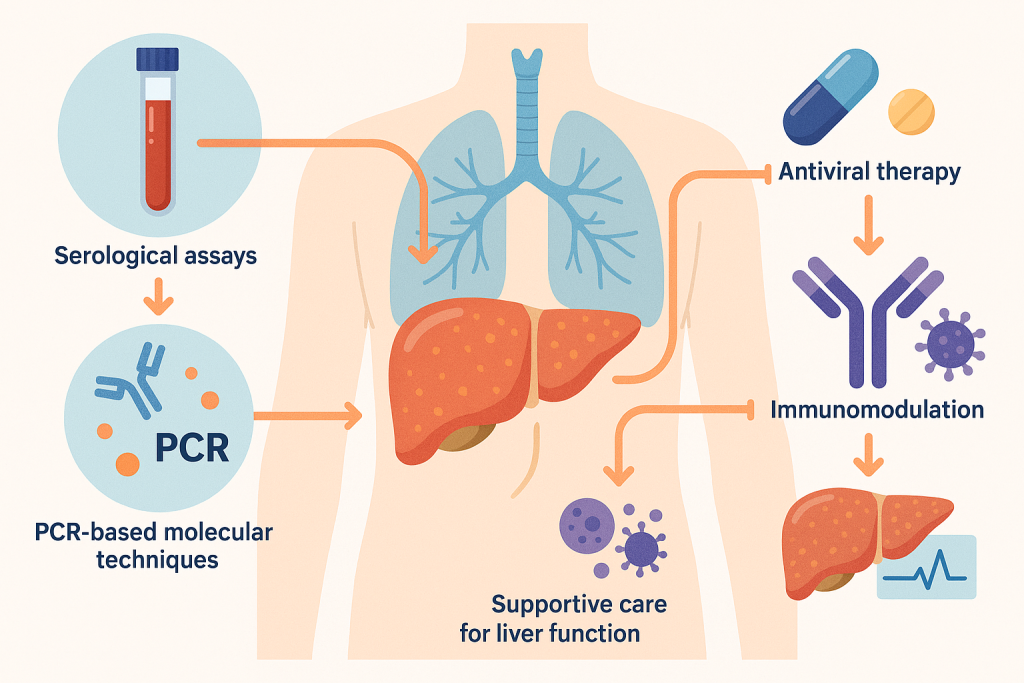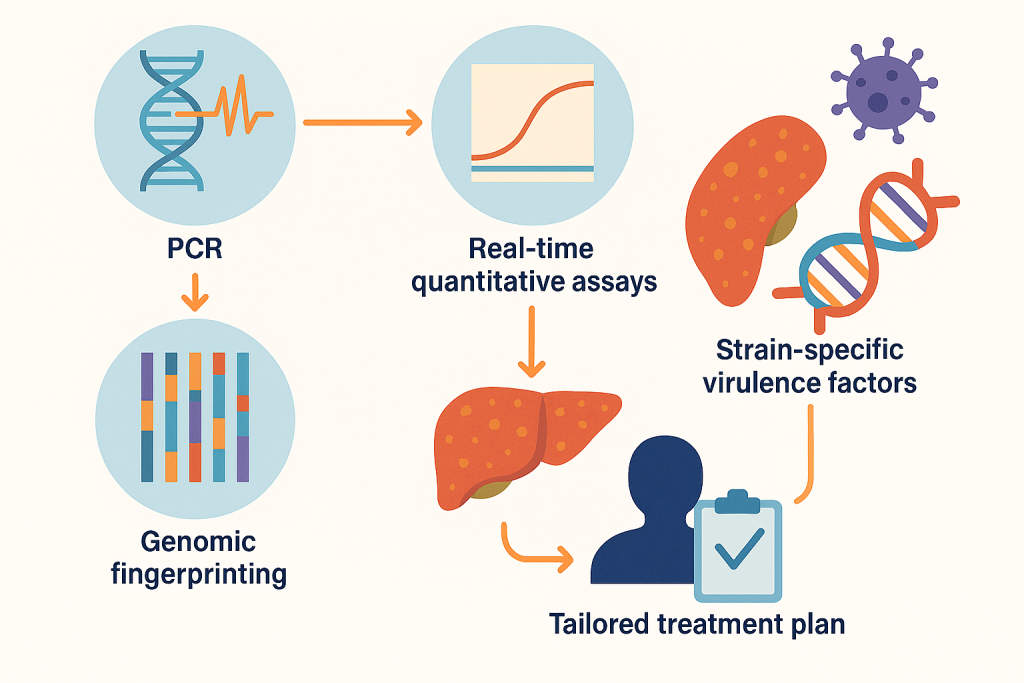Infectious Diseases & Diagnostics

Expertise in Diagnosing and Managing Hepatitis, Amoebiasis, H. pylori, and Other Infections with Advanced Molecular Tools
At CLRD, we specialize in the diagnosis and treatment of complex infectious diseases, leveraging decades of clinical experience and cutting-edge molecular diagnostic technologies. Our expertise spans a wide spectrum of infections, including viral hepatitis, amoebiasis, Helicobacter pylori-related disorders, and other gastrointestinal and systemic infections. This capability is rooted in a strong foundation of translational research and clinical innovation, enabling us to deliver precise, patient-centric care.
Hepatitis: Comprehensive Diagnostic and Therapeutic Solutions
Hepatitis remains a major global health challenge, and CLRD offers advanced diagnostic protocols for Hepatitis A, B, C, and E, as well as non-A, non-B variants. Our approach integrates serological assays, ELISA, and PCR-based molecular techniques to ensure early and accurate detection. Beyond diagnosis, we provide tailored treatment strategies for acute and chronic hepatitis, including antiviral therapy, immunomodulation, and supportive care for liver function restoration. Our clinical protocols are informed by extensive research on HBV genotypes, HCV genomic variability, and immune response modulation, ensuring evidence-based interventions for diverse patient populations.

Amoebiasis: Precision in Identification and Management
Amoebiasis, particularly hepatic amoebiasis, demands rapid and accurate diagnosis to prevent complications. CLRD employs advanced imaging modalities alongside immunodiagnostic tools such as ELISA and multilayer antigen detection systems for definitive diagnosis. Our treatment regimens combine anti-amoebic pharmacotherapy with liver function monitoring, guided by decades of clinical experience in managing amoebic liver abscesses. The center’s historical contributions to understanding immunological markers and pathogenesis of amoebiasis reinforce our leadership in delivering effective therapeutic outcomes.
Helicobacter pylori: Molecular Diagnostics and Targeted Therapy
H. pylori infection is a critical factor in peptic ulcer disease and gastric carcinoma. At CLRD, we utilize multiplex PCR assays, genotyping of virulence markers (such as cagA and vacA), and antibiotic susceptibility profiling to design personalized eradication protocols. Our therapeutic strategies include optimized antibiotic combinations and adjunctive therapies to enhance mucosal healing and prevent recurrence. The integration of molecular insights into clinical practice allows us to address antibiotic resistance and improve treatment success rates significantly.

Advanced Molecular Tools for Infectious Disease Management
CLRD’s diagnostic arm is equipped with state-of-the-art molecular platforms, enabling rapid detection of pathogens through PCR, real-time quantitative assays, and genomic fingerprinting. These tools not only facilitate early diagnosis but also guide therapeutic decisions by identifying strain-specific virulence factors and resistance patterns. Our commitment to precision medicine ensures that every patient receives a treatment plan tailored to their unique clinical and genetic profile.
CLRD’s Capability in Diagnosis and Treatment
Our center stands at the forefront of infectious disease management, combining clinical acumen with technological innovation. From serological screening to next-generation sequencing, we offer a comprehensive diagnostic spectrum. Treatment protocols are continuously refined based on global best practices and indigenous research, ensuring superior patient outcomes. Whether managing chronic hepatitis, resolving amoebic liver abscesses, or eradicating H. pylori infections, CLRD delivers holistic care encompassing diagnosis, therapy, and long-term monitoring.
